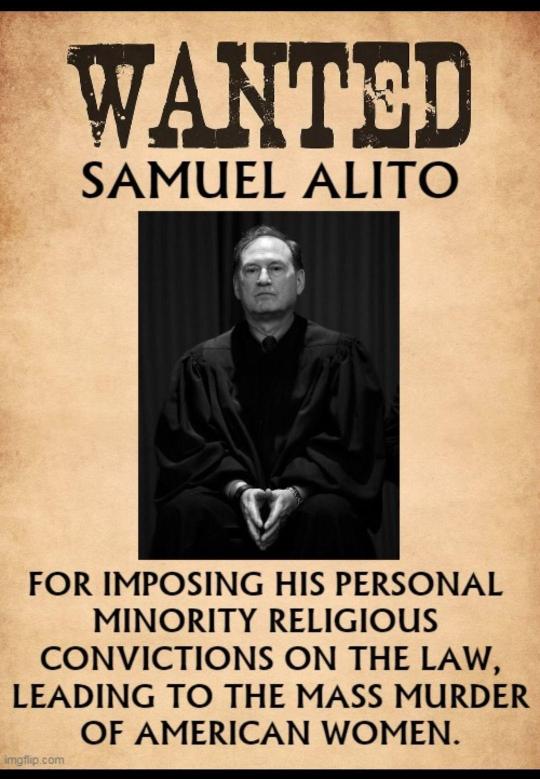#SCOTUS
Quote
The conservative justices had an opportunity to rally to the defense of democracy, to gird the system against further attack, to righteously defend the rule of law, and to protect its own prerogatives and powers against a wannabe tyrant who is counting on them to be his supplicants. They could have drawn a sharp line. They could have summoned indignation and outrage. They could have overlooked their partisan priors in favor of principle – or more cravenly in favor of self-preservation. With the possible and limited exception of Justice Amy Coney Barrett, they did none of that.
They failed in the worst possible way at the most crucial time.
Rogue SCOTUS Abandons Democracy In Her Hour Of Greatest Need
Say this with me: This SCOTUS majority is not an impartial arbiter of law. This SCOTUS majority has no respect for precedent, the will of the people, or its fundamental role in government.
This SCOTUS majority is doing through force what the other members of their movement could not achieve through elections: change laws to take equality and freedoms away from as many people as possible, to completely remake America into something we don’t recognize.
Donald Trump and his cult are the greatest threat America has ever faced in its history, with this corrupt, venal, activist group of unelected liars (and at least two rapists) enabling him.
Democrats absolutely have to expand the court and begin an impeachment inquiry into Thomas and Kavanaugh the instant they have congressional majorities.
I don’t think it’s too late, but it’s about five seconds away from being too late. If Congress doesn’t act hard and fast, these seven people will turn America over to corporations and megachurches.
We have to stop this, and the only way we have any chance at all is to turn out in massive numbers this November to overwhelmingly defeat the people who will put Project 2025 into action.
272 notes
·
View notes
Text

Ketanji Brown Jackson: you will create a tyrant.
Conservatives: that is what we want. A white king.
Rest of us: what about 2A gun rhetoric?
Conservatives: that was bad faith white supremacist response. We want a tyrant.
181 notes
·
View notes
Text
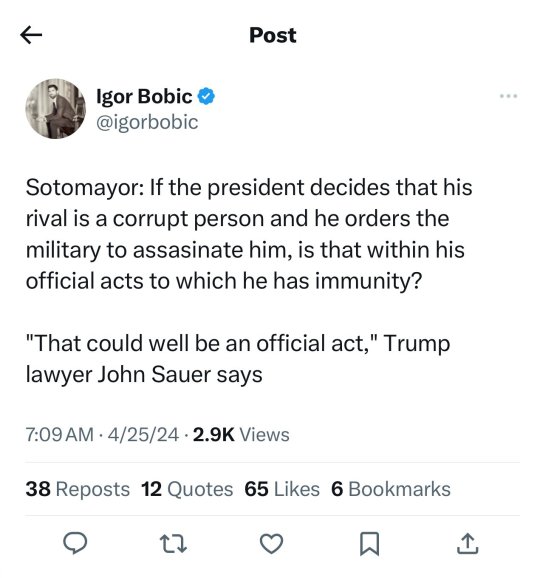
Biden has the opportunity to do the funniest thing ever here.
#News#trump#republicans#democrats#politics#scotus#woc#j6#true criime#xwitter#twitter#potus#cnn#maga#fox news#women of color
114 notes
·
View notes
Text
Where democracy goes to die - where justice is corrupted by the wealthy
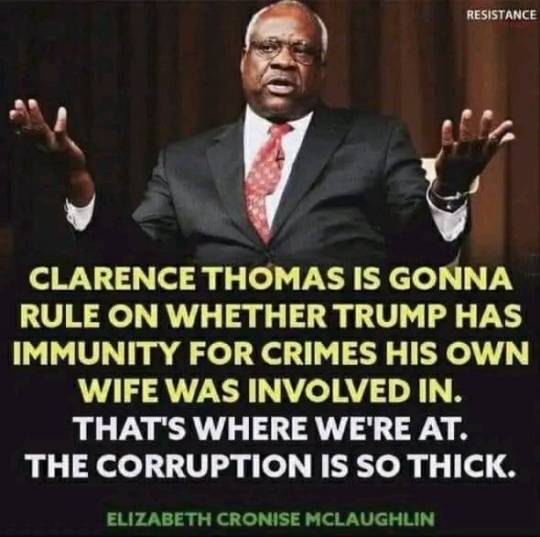
#democrats#republicans#donald trump#trumpchumps#democracy#scotus#doj#president joe biden#vp kamala harris#ali velshi
55 notes
·
View notes
Text
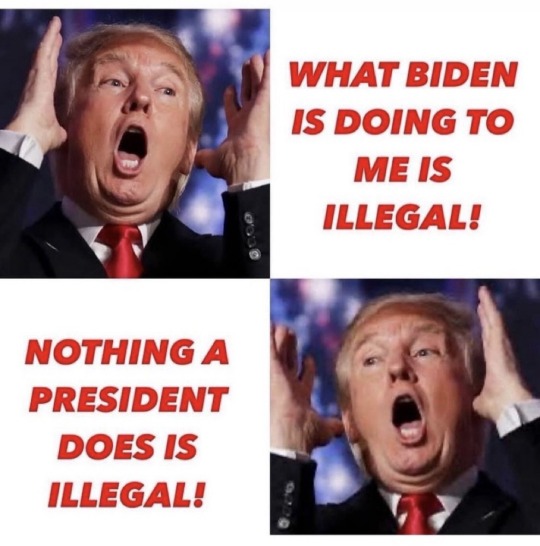

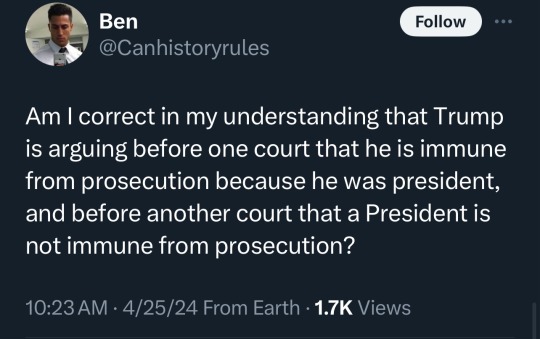

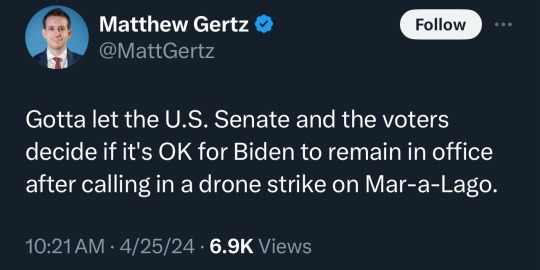
Can’t have it both ways. Either it’s okay for Biden to drone strike the Trump family at Mar-a-Lago, or it isn’t.
Either Presidential immunity is a license for carte blanche criminal activity, or it isn’t.
This is not hard, and as an American citizen I’m embarrassed that this is the kind of fuckery that the Supreme Court has decided is even worthy of the court’s consideration.
37 notes
·
View notes
Quote
The Roberts Court is a corrupt institution which operates in concert with and on behalf of the Republican Party and to an ambiguous degree right-wing anti-regulatory ideology. If we believe in a different set of policies or even democratic self-governance we will have to succeed at that with the Supreme Court acting as a consistent adversary.
The Court is Corrupt. Say It With Me.
22 notes
·
View notes
Text
S.V. Dáte at HuffPost:
WASHINGTON — A presidential order to the military to conduct a coup to keep him in office “might well be an official act,” Donald Trump’s lawyer told the Supreme Court Thursday on the question of whether Trump’s attempted coup is immune from prosecution.
The extraordinary exchange was among several in lengthy oral arguments before the justices, who will now decide whether the former president will stand trial on federal charges based on his actions leading up to the violent assault on the Capitol on Jan. 6, 2021.
Trump has been claiming that all his actions as president were “official acts” and therefore immune from prosecution entirely. While justices seemed skeptical of that assertion, most expressed concern that former presidents could be prosecuted in bad faith and for political reasons in the years to come.
“Reliance on the good faith of the prosecutor may not be enough,” Chief Justice John Roberts told Department of Justice lawyer Michael Dreeben.
“I take that concern,” added Justice Ketanji Brown Jackson. “I think it’s a real thing.”
How justices decide to protect future presidents from prosecutions based on their legitimate official actions could decide whether Trump faces a trial at all before the November election on the Jan. 6 indictment. If the court orders trial judge Tanya Chutkan to hold an evidentiary hearing to weed out the “official” components of Trump’s actions versus the ones for his private or political gain, that hearing and potential appeals of her ruling could consume many more months.
And if Trump wins back the White House, he could order prosecutors to drop all unresolved federal charges against him.
While Dreeben did not refer to the coming election at all, he repeated his boss special counsel Jack Smith’s request that the case be sent back to Chutkan with instructions that concerns about not punishing “official” acts be dealt with in jury instructions, rather than a separate hearing.
“We would like to present that as an integrated picture to the jury so that it sees the sequence and the gravity of the conduct and why each step occurred,” Dreeben said.
Trump’s lawyer, John Sauer, meanwhile came in for even more pointed questioning from most of the justices, but none more on point than Elena Kagan’s question about 40 minutes in.
“How about if the president orders the military to stage a coup?” Kagan asked.
“That might well be an official act,” Sauer answered.
Sauer also claimed that a presidential assassination of a political rival as well as the sale of nuclear secrets to a foreign power could also be defended as official acts immune from prosecution.
Trump was not at the Supreme Court during the oral arguments Thursday but rather was in a different courtroom, in lower Manhattan, in the early phase of an unrelated criminal trial.
During the oral arguments for the Trump v. United States presidential immunity case at SCOTUS on Thursday, Trump lawyer John Sauer told the court that even a military coup would be immune from prosecution as an "official act."
See Also:
HuffPost: Trump Lawyer Argues He Could Legally Order Assassination Of Political Rival
#SCOTUS#Trump v. United States#Capitol Insurrection#The Big Lie#John Sauer#Tanya Chutkan#Michael Dreeben
22 notes
·
View notes
Text
Democrats, Republicans and anyone in between have a listen.
#scotus#rule of law#united states#democracy#donald trump#american criminals#republicans#democrats#newsweek#breaking news#america#joe biden#us presidents#natanji brown jackson#trump is a threat to democracy#what are we even doing#loss of democracy#jack smith#vote blue
30 notes
·
View notes
Text
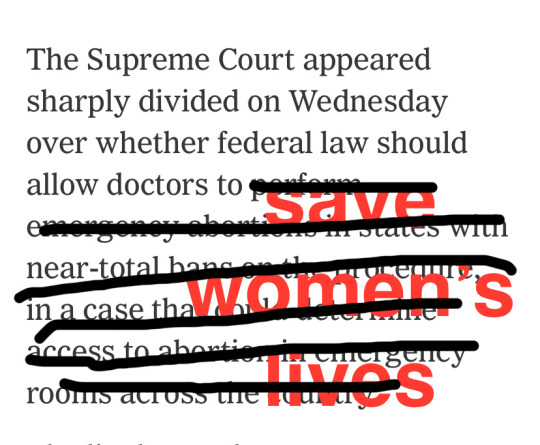
Article from https://www.nytimes.com/2024/04/24/us/politics/supreme-court-idaho-abortion-ban.html?smid=nytcore-ios-share&referringSource=articleShare&sgrp=c-cb
21 notes
·
View notes
Text
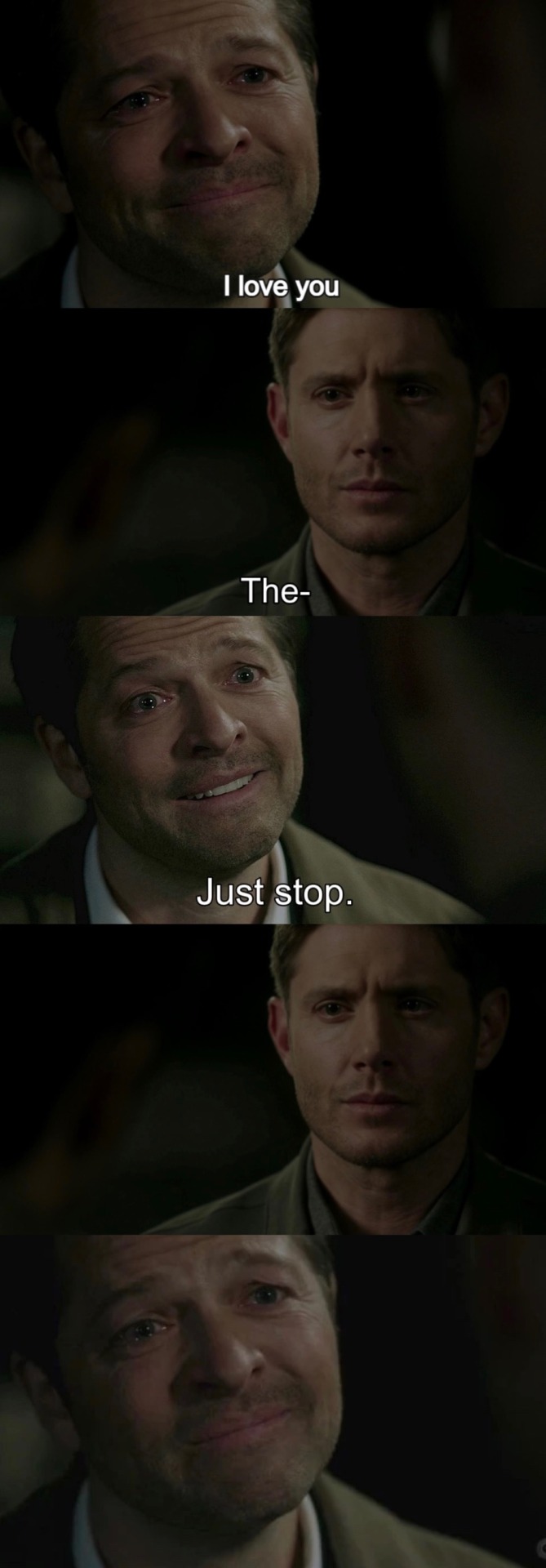
I don’t want to find out about world events anymore
#closing my eyes for the foreseeable future#supernatural#spn#destiel#oceangate#titanic#russia#scotus#hellsite#1k#5k#10k#20k#30k
37K notes
·
View notes
Text

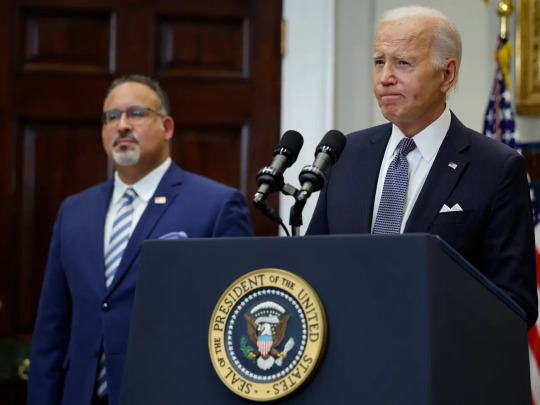
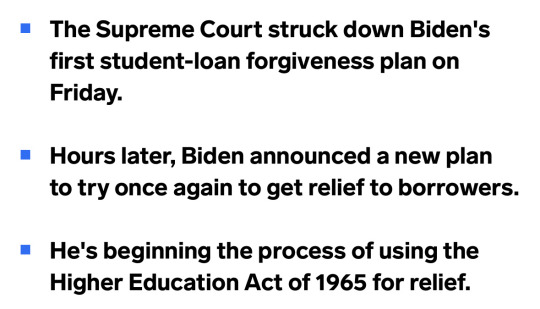
Source
All hope is not lost
#education#Joe Biden#student debt#scotus#Supreme Court#cancel student debt#politics#us politics#government#the left#progressive#current events#news
24K notes
·
View notes
Text
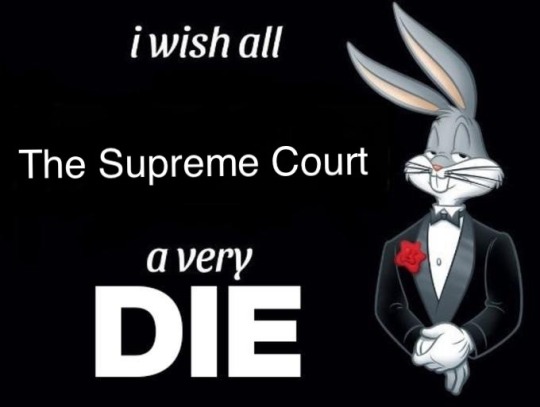
#the supreme court#roe v wade#roe versus wade#politics#scotus#obama#activism#human rights#abortion#reproductive rights#healthcare#feminism#women’s rights#meme#memes#*mypost
114K notes
·
View notes
Text
DelayDon biggest problem - His Pecker

#democrats#republicans#donald trump#trumpchumps#doj#scotus#melaniatrump#karen mcdougal#stormy daniels#president joe biden#vp kamala harris#ali velshi
33 notes
·
View notes
Text
It all started with a mouse
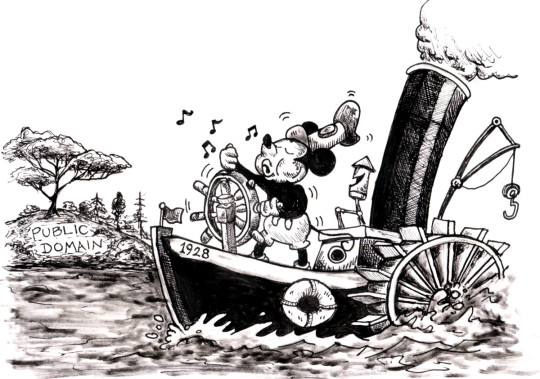
For the public domain, time stopped in 1998, when the Sonny Bono Copyright Act froze copyright expirations for 20 years. In 2019, time started again, with a massive crop of works from 1923 returning to the public domain, free for all to use and adapt:
https://web.law.duke.edu/cspd/publicdomainday/2019/
No one is better at conveying the power of the public domain than Jennifer Jenkins and James Boyle, who run the Duke Center for the Study of the Public Domain. For years leading up to 2019, the pair published an annual roundup of what we would have gotten from the public domain in a universe where the 1998 Act never passed. Since 2019, they've switched to celebrating what we're actually getting each year. Last year's was a banger:
https://pluralistic.net/2022/12/20/free-for-2023/#oy-canada
But while there's been moderate excitement at the publicdomainification of "Yes, We Have No Bananas," AA Milne's "Now We Are Six," and Sherlock Holmes, the main event that everyone's anticipated arrives on January 1, 2024, when Mickey Mouse enters the public domain.
The first appearance of Mickey Mouse was in 1928's Steamboat Willie. Disney was critical to the lobbying efforts that extended copyright in 1976 and again in 1998, so much so that the 1998 Act is sometimes called the Mickey Mouse Protection Act. Disney and its allies were so effective at securing these regulatory gifts that many people doubted that this day would ever come. Surely Disney would secure another retrospective copyright term extension before Jan 1, 2024. I had long arguments with comrades about this – people like Project Gutenberg founder Michael S Hart (RIP) were fatalistically certain the public domain would never come back.
But they were wrong. The public outrage over copyright term extensions came too late to stave off the slow-motion arson of the 1976 and 1998 Acts, but it was sufficient to keep a third extension away from the USA. Canada wasn't so lucky: Justin Trudeau let Trump bully him into taking 20 years' worth of works out of Canada's public domain in the revised NAFTA agreement, making swathes of works by living Canadian authors illegal at the stroke of a pen, in a gift to the distant descendants of long-dead foreign authors.
Now, with Mickey's liberation bare days away, there's a mounting sense of excitement and unease. Will Mickey actually be free? The answer is a resounding YES! (albeit with a few caveats). In a prelude to this year's public domain roundup, Jennifer Jenkins has published a full and delightful guide to The Mouse and IP from Jan 1 on:
https://web.law.duke.edu/cspd/mickey/
Disney loves the public domain. Its best-loved works, from The Sorcerer's Apprentice to Sleeping Beauty, Pinnocchio to The Little Mermaid, are gorgeous, thoughtful, and lively reworkings of material from the public domain. Disney loves the public domain – we just wish it would share.
Disney loves copyright's other flexibilities, too, like fair use. Walt told the papers that he took his inspiration for Steamboat Willie from Charlie Chaplin and Douglas Fairbanks, making fair use of their performances to imbue Mickey with his mischief and derring do. Disney loves fair use – we just wish it would share.
Disney loves copyright's limitations. Steamboat Willie was inspired by Buster Keaton's silent film Steamboat Bill (titles aren't copyrightable). Disney loves copyright's limitations – we just wish it would share.
As Jenkins writes, Disney's relationship to copyright is wildly contradictory. It's the poster child for the public domain's power as a source of inspiration for worthy (and profitable) new works. It's also the chief villain in the impoverishment and near-extinction of the public domain. Truly, every pirate wants to be an admiral.
Disney's reliance on – and sabotage of – the public domain is ironic. Jenkins compares it to "an oil company relying on solar power to run its rigs." Come January 1, Disney will have to share.
Now, if you've heard anything about this, you've probably been told that Mickey isn't really entering the public domain. Between trademark claims and later copyrightable elements of Mickey's design, Mickey's status will be too complex to understand. That's totally wrong.

Jenkins illustrates the relationship between these three elements in (what else) a Mickey-shaped Venn diagram. Topline: you can use all the elements of Mickey that are present in Steamboat Willie, along with some elements that were added later, provided that you make it clear that your work isn't affiliated with Disney.
Let's unpack that. The copyrightable status of a character used to be vague and complex, but several high-profile cases have brought clarity to the question. The big one is Les Klinger's case against the Arthur Conan Doyle estate over Sherlock Holmes. That case established that when a character appears in both public domain and copyrighted works, the character is in the public domain, and you are "free to copy story elements from the public domain works":
https://freesherlock.files.wordpress.com/2013/12/klinger-order-on-motion-for-summary-judgment-c.pdf
This case was appealed all the way to the Supreme Court, who declined to hear it. It's settled law.
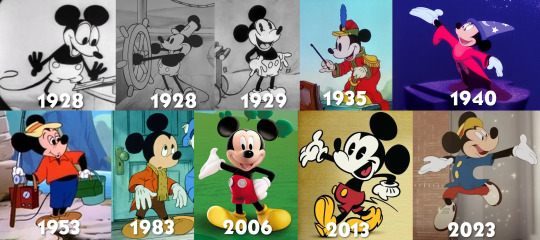
So, which parts of Mickey aren't going into the public domain? Elements that came later: white gloves, color. But that doesn't mean you can't add different gloves, or different colorways. The idea of a eyes with pupils is not copyrightable – only the specific eyes that Disney added.
Other later elements that don't qualify for copyright: a squeaky mouse voice, being adorable, doing jaunty dances, etc. These are all generic characteristics of cartoon mice, and they're free for you to use. Jenkins is more cautious on whether you can give your Mickey red shorts. She judges that "a single, bright, primary color for an article of clothing does not meet the copyrightability threshold" but without settled law, you might wanna change the colors.
But what about trademark? For years, Disney has included a clip from Steamboat Willie at the start of each of its films. Many observers characterized this as a bid to create a de facto perpetual copyright, by making Steamboat Willie inescapably associated with products from Disney, weaving an impassable web of trademark tripwires around it.
But trademark doesn't prevent you from using Steamboat Willie. It only prevents you from misleading consumers "into thinking your work is produced or sponsored by Disney." Trademarks don't expire so long as they're in use, but uses that don't create confusion are fair game under trademark.
Copyrights and trademarks can overlap. Mickey Mouse is a copyrighted character, but he's also an indicator that a product or service is associated with Disney. While Mickey's copyright expires in a couple weeks, his trademark doesn't. What happens to an out-of-copyright work that is still a trademark?
Luckily for us, this is also a thoroughly settled case. As in, this question was resolved in a unanimous 2000 Supreme Court ruling, Dastar v. Twentieth Century Fox. A live trademark does not extend an expired copyright. As the Supremes said:
[This would] create a species of mutant copyright law that limits the public’s federal right to copy and to use expired copyrights.
This elaborates on the Ninth Circuit's 1996 Maljack Prods v Goodtimes Home Video Corp:
[Trademark][ cannot be used to circumvent copyright law. If material covered by copyright law has passed into the public domain, it cannot then be protected by the Lanham Act without rendering the Copyright Act a nullity.
Despite what you might have heard, there is no ambiguity here. Copyrights can't be extended through trademark. Period. Unanimous Supreme Court Decision. Boom. End of story. Done.
But even so, there are trademark considerations in how you use Steamboat Willie after Jan 1, but these considerations are about protecting the public, not Disney shareholders. Your uses can't be misleading. People who buy or view your Steamboat Willie media or products have to be totally clear that your work comes from you, not Disney.

Avoiding confusion will be very hard for some uses, like plush toys, or short idents at the beginning of feature films. For most uses, though, a prominent disclaimer will suffice. The copyright page for my 2003 debut novel Down and Out in the Magic Kingdom contains this disclaimer:
This novel is a work of fiction, set in an imagined future. All the characters and events portrayed in this book, including the imagined future of the Magic Kingdom, are either fictitious or are used fictitiously. The Walt Disney Company has not authorized or endorsed this novel.
https://us.macmillan.com/books/9781250196385/downandoutinthemagickingdom
Here's the Ninth Circuit again:
When a public domain work is copied, along with its title, there is little likelihood of confusion when even the most minimal steps are taken to distinguish the publisher of the original from that of the copy. The public is receiving just what it believes it is receiving—the work with which the title has become associated. The public is not only unharmed, it is unconfused.
Trademark has many exceptions. The First Amendment protects your right to use trademarks in expressive ways, for example, to recreate famous paintings with Barbie dolls:
https://www.copyright.gov/fair-use/summaries/mattel-walkingmountain-9thcir2003.pdf
And then there's "nominative use": it's not a trademark violation to use a trademark to accurately describe a trademarked thing. "We fix iPhones" is not a trademark violation. Neither is 'Works with HP printers.' This goes double for "expressive" uses of trademarks in new works of art:
https://en.wikipedia.org/wiki/Rogers_v._Grimaldi
What about "dilution"? Trademark protects a small number of superbrands from uses that "impair the distinctiveness or harm the reputation of the famous mark, even when there is no consumer confusion." Jenkins says that the Mickey silhouette and the current Mickey character designs might be entitled to protection from dilution, but Steamboat Willie doesn't make the cut.
Jenkins closes with a celebration of the public domain's ability to inspire new works, like Disney's Three Musketeers, Disney's Christmas Carol, Disney's Beauty and the Beast, Disney's Around the World in 80 Days, Disney's Alice in Wonderland, Disney's Snow White, Disney's Hunchback of Notre Dame, Disney's Sleeping Beauty, Disney's Cinderella, Disney's Little Mermaid, Disney's Pinocchio, Disney's Huck Finn, Disney's Robin Hood, and Disney's Aladdin. These are some of the best-loved films of the past century, and made Disney a leading example of what talented, creative people can do with the public domain.
As of January 1, Disney will start to be an example of what talented, creative people give back to the public domain, joining Dickens, Dumas, Carroll, Verne, de Villeneuve, the Brothers Grimm, Twain, Hugo, Perrault and Collodi.
Public domain day is 17 days away. Creators of all kinds: start your engines!

If you'd like an essay-formatted version of this post to read or share, here's a link to it on pluralistic.net, my surveillance-free, ad-free, tracker-free blog:
https://pluralistic.net/2023/12/15/mouse-liberation-front/#free-mickey

Image:
Doo Lee (modified)
https://web.law.duke.edu/sites/default/files/images/centers/cspd/pdd2024/mickey/Steamboat-WIllie-Enters-Public-Domain.jpeg
CC BY 4.0
https://creativecommons.org/licenses/by/4.0/deed.en
#pluralistic#copyfight#scotus#mickey mouse#public domain#ip#contract#trademark#tm#jennifer jenkins#copyright#disney#nominative use
6K notes
·
View notes



